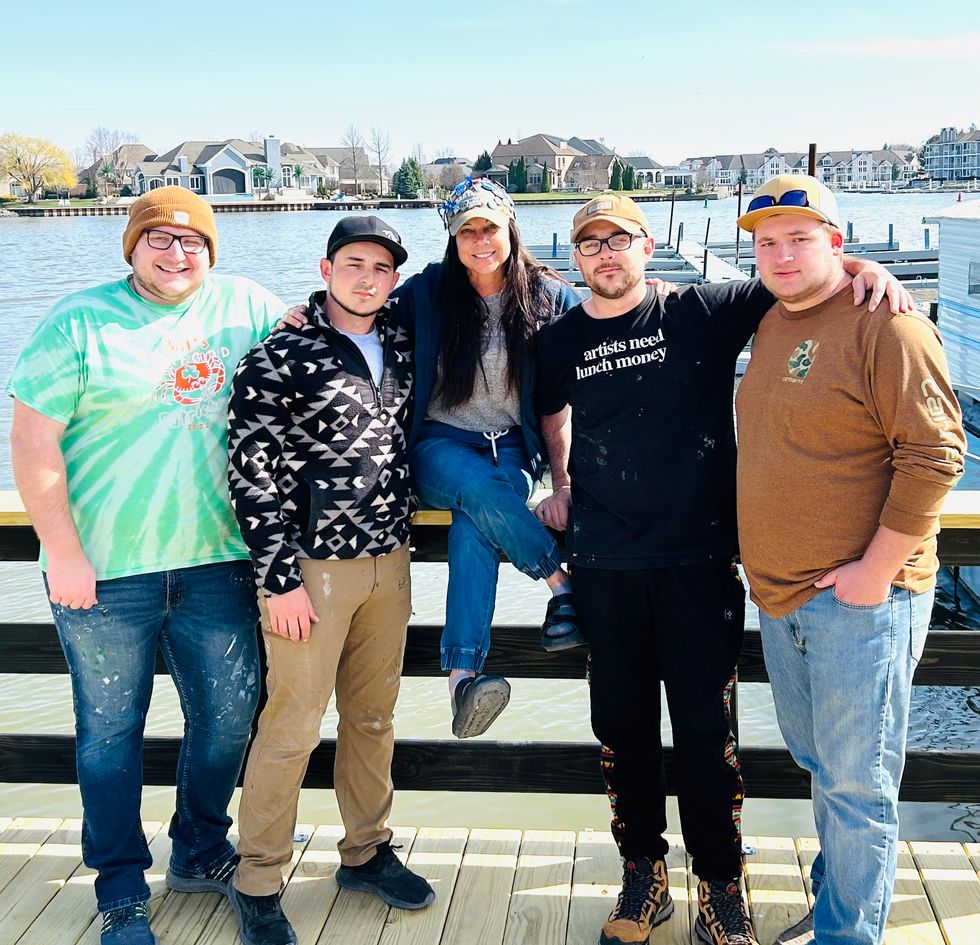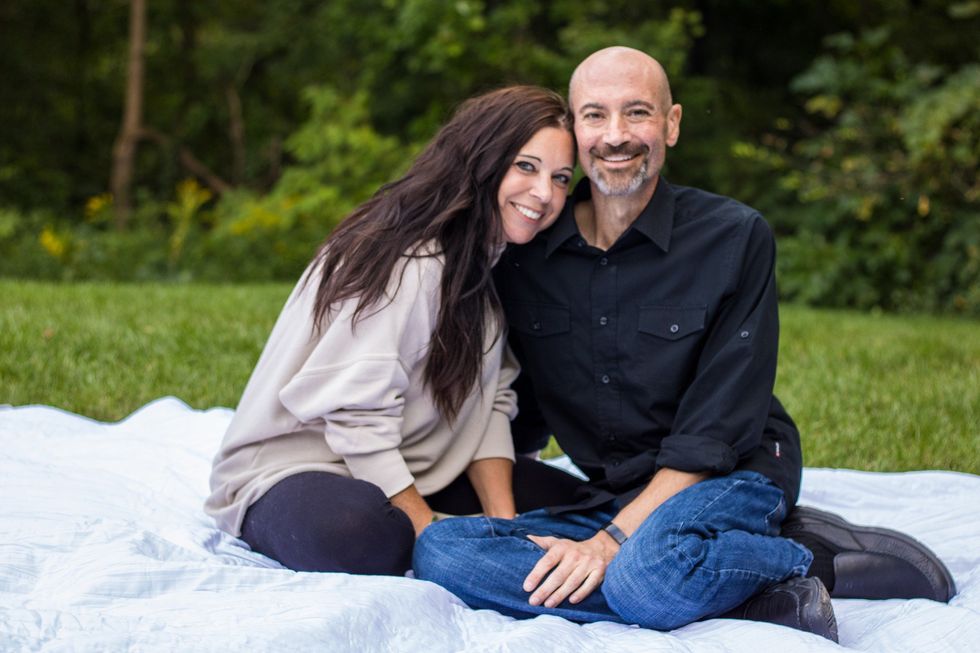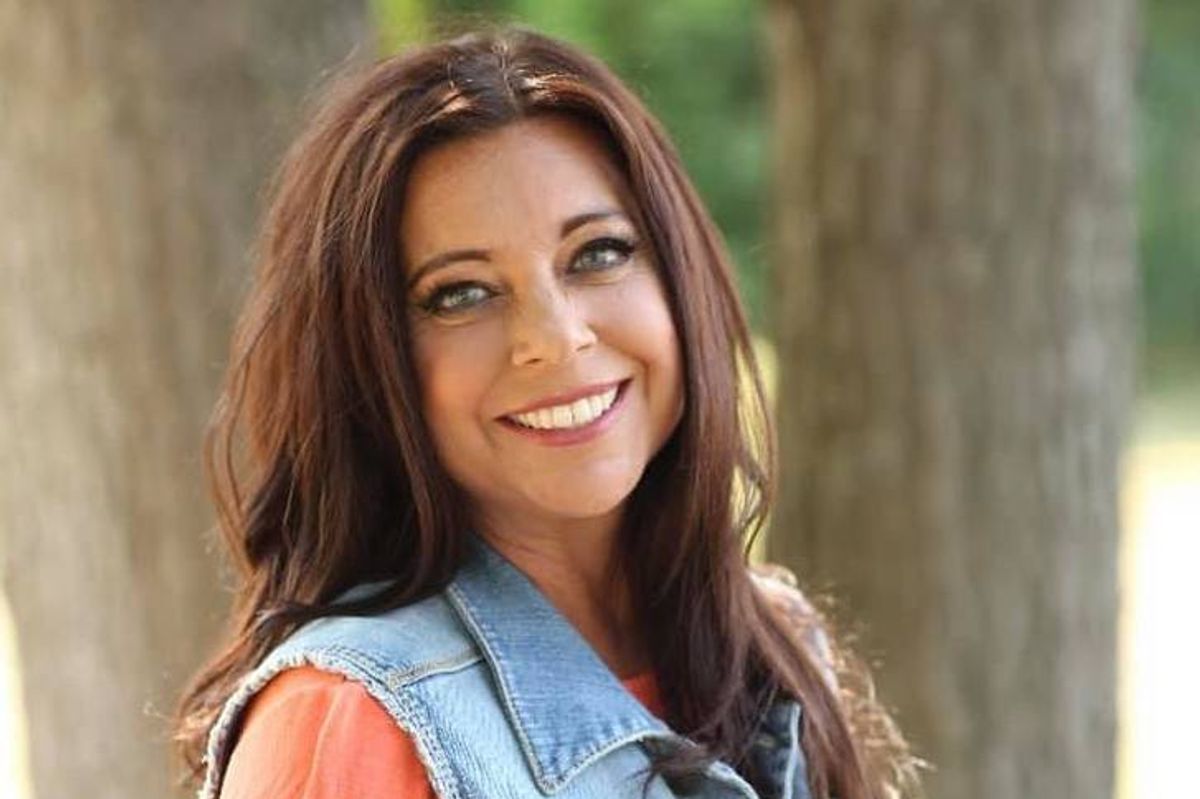As told to Erica Rimlinger
In spring 2016, I walked into the emergency room (ER) seeking treatment for shoulder pain. I had been backpacking, and I explained to the staff that I probably had a pinched nerve in my shoulder from my 15-mile hike. I expected to get a shot and instructions to follow up with an orthopedist. Instead, I got a diagnosis of colon cancer that had spread to my liver and instructions to follow up with an oncologist.
How did this happen? In this first step of what I’ve come to see as a journey paved with incredible luck, the ER doctor got curious after seeing an unexpected result in my routine bloodwork. If that doctor had been tired that day or even just slightly less curious about a woman with a routine shoulder injury, I wouldn’t have been diagnosed with colon cancer. I had no symptoms. Instead, he dove deeper. He ordered an ultrasound of my liver. I argued, “I’m just here for my shoulder.” Then, when he didn’t like the ultrasound results, he ordered a CT scan. What he found made all of us forget why I’d come in.
I had a colonoscopy the next day, where the oncologist found my colon full of tumors that were spreading. I had six months to live, the doctor predicted. “Chemotherapy can buy you a little bit of time so you can shrink the tumors enough to reach surgery,” he said. But he didn’t think I’d make it to surgery. He told me to get my affairs in order.
Affairs? Order? I have four sons. I had to think of my boys. I was just 42, and I certainly didn’t want my kids to think I’d given up on them, so I chose to fight with chemotherapy. I made it through 12 rounds of chemo and to surgery — just barely. The surgeons at the Cleveland Clinic took a chance on me. Nobody else dared. My surgeon removed the right lobe of my liver and my colon. He installed a hepatic arterial infusion (HAI) pump — a device that delivers chemotherapy directly into an organ — in the left lobe of my liver. By this time, eight months had passed since my diagnosis.

I learned to adjust to my post-surgical life with no colon and half a liver that was, in theory, going to slowly grow back to its original size. But in August 2017, I got very sick and my eyes turned yellow — a tell-tale sign of liver problems. My liver, taxed after the multiple surgeries I’d needed to remove scar tissue or fix issues created by other surgeries, was failing.
Throughout treatment, my doctors had always had a Plan B in their back pocket. But this time, my doctor sat on my hospital bed and told me, “I don’t know what we can do to keep you alive.”
But there was one more possibility, so far-fetched it didn’t seem like a possibility at all. Liver transplants for people in my condition and cancer stage had never been used with success in the United States. But I was young when I was diagnosed and as healthy as I’d ever been — aside from, of course, the cancer that had been quietly growing within me.
I set out to find a donor. I used Facebook ads and asked my church congregation for support. In my faith, I’ve been taught if you have a need, you declare it. Fifty people offered to help. Jason, a fellow churchgoer, was my perfect match. On April 23, 2018, doctors removed half his liver and transplanted it to me.
Over the past seven years, I’ve learned our time on Earth isn’t promised and mortality isn’t somewhere off in the distance. Cancer taught me ownership, and how to claim my narrative, tell my truth and reclaim myself in the present. My family and I have more opportunity to live and let go of things that aren’t healthy or serve us well.
Through my advocacy work, I met a man named Mike. He was also a stage 4 survivor. I didn’t want to get involved because, well, we both had stage 4 cancer. But I came to realize we could measure love in quality, not quantity of time. We were together for around three years until he died in my arms on March 4, 2022. I felt blessed by the profound gift we shared. Without cancer, I never would have had the experience of being truly loved.

Life is different now, and the person I was before cancer no longer exists. With my training and background as a teacher, I have pivoted to a career as a patient resource coordinator and an advocate. Advocacy has been the most profound experience of my life and I feel my purpose is being fulfilled right now.
I also realized through this journey how privileged I was. I had the best care, the best insurance and the skillset to advocate. At the time, I didn’t realize that wasn’t the norm, but it’s not.
As I dove into patient resource care, I recognized the privilege I’d gotten throughout my care. Recognizing my privilege has pushed me to speak up and say we need to do better. People are dying.
Cancer is not my story. The beautiful connections and relationships and the outlook on life I’ve gained because of cancer are my story. And my story is still going.
This resource was created with support from Merck.
Have a Real Women, Real Stories of your own you want to share? Let us know.
Our Real Women, Real Stories are the authentic experiences of real-life women. The views, opinions and experiences shared in these stories are not endorsed by HealthyWomen and do not necessarily reflect the official policy or position of HealthyWomen.
- How to Care for Your Mental Health if You Have Colon Cancer ›
- Colorectal Cancer: What Every Woman Needs to Know ›
- Country Music Star Raises Awareness for Colon Cancer ›
- Signs You Should Get a Colonoscopy ›
- My Symptoms Were Dismissed as Hemorrhoids, but I Had Colon Cancer ›
- My Doctor Dismissed My Colon Cancer Red Flags as Normal Pregnancy Symptoms ›
- No If, Ands or Butts: All Things Colon Cancer – Webinar - HealthyWomen ›
- As a Mom, I Always Put My Needs Last – Until Stage 4 Colon Cancer Showed Up - HealthyWomen ›
- Como madre, siempre puse mis necesidades al último, hasta que apareció el cáncer de colon de etapa 4 - HealthyWomen ›
- I Was “Too Young” to Have Colon Cancer - HealthyWomen ›
- Era “demasiado joven” para tener cáncer de colon - HealthyWomen ›
- Mental Health and Colon Cancer - HealthyWomen ›
- Los altibajos de la salud mental con el cáncer de colon - HealthyWomen ›







